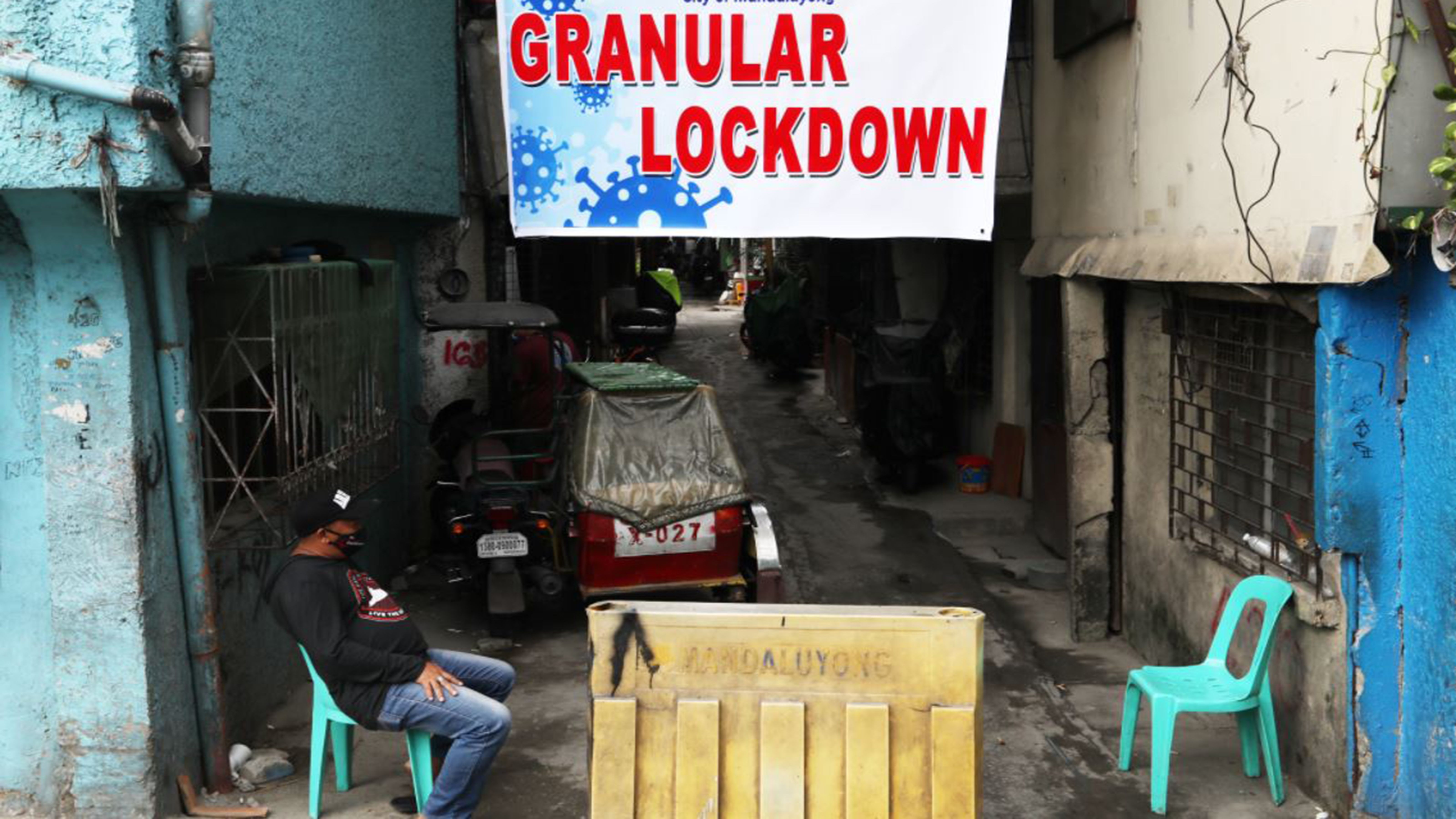Under the new system, instead of whole areas being placed under a lockdown, only small pockets or areas with transmission would be placed under a hard lockdown and at different levels – from one to four, with four being the most stringent.
AS the national government continues to navigate the delicate balance between controlling the Covid-19 pandemic and the need to jumpstart economic recovery, officials handling the country's Covid-19 response has approved the implementation of a granular lockdown system starting September 8.
The National Capital Region (NCR) will serve as a "pilot area" for the new system, Trade Secretary Ramon Lopez announced Saturday.
NCR is currently under modified enhanced community quarantine (MECQ) until September 7.
The new guidelines are expected to be released before that date, Lopez added.
Earlier, Department of the Interior and Local Government Undersecretary Jonathan Malaya said there was a consensus among government agencies to impose granular lockdowns instead of province-wide or city-wide quarantine restrictions.
Under the new system, instead of whole areas being placed under a lockdown, only small pockets or areas with transmission would be placed under a hard lockdown and at different levels – from one to four, with four being the most stringent.
He said food would be provided to those in areas under hard lockdown.
Lopez also said more businesses would be allowed to open and operate at different capacities depending on the level imposed, and that health protocols like wearing face masks, face shields, distancing and ventilation would still have to be observed.
“There will be flexibility for LGU (local government unit) chief executives,” Lopez said.
For authorized persons outside of residence in areas under hard lockdown, he said it is suggested they not be allowed to go in and out, and employers should provide temporary housing or lodging.
The new regulations come as the Department of Health recorded more than 20,000 cases per day in two days.
Based on the DOH’s case bulletin, 20,741 new Covid-19 cases were reported Saturday (August 4), while last Friday (August 3), the DOH documented 20,310 cases.
Meanwhile, the quarantine status of other areas in the Philippines have yet to be announced as of this time.
More manpower needed
While the OCTA Research Group has approved the decision, it said local government units (LGUs) may need additional manpower to effectively implement the granular lockdowns.
OCTA Research Fellow Dr. Guido David said "based on country's history," there is no evidence yet to prove the efficacy of granular lockdowns imposed in LGUs during a surge.
To increase the efficacy of granular lockdowns, David suggested LGUs adopt more interventions including having additional manpower.
"Kapag nagpatupad ng granular (lockdowns), manpower-intensive 'yan per local government. Kapag nagsara ng kalye, may magbabantay ng barangay employees. Tapos sila maghahatid ng pagkain," he said in a media interview.
He also warned that LGUs have a limit to their granular lockdown in terms of area, which may not be effective if Covid-19 cases are already spreading in communities.
"May limit ang LGU sa mala-lockdown nila. Kung ang COVID natin kalat-kalat sa buong city, sabihin natin na 100 barangays sa LGUs, tapos manpower nila 50 barangays lang, kukulangin din," he said.
Tags: #granularlockdown, #quarantine, #Covid19, #NationalCapitalRegion
